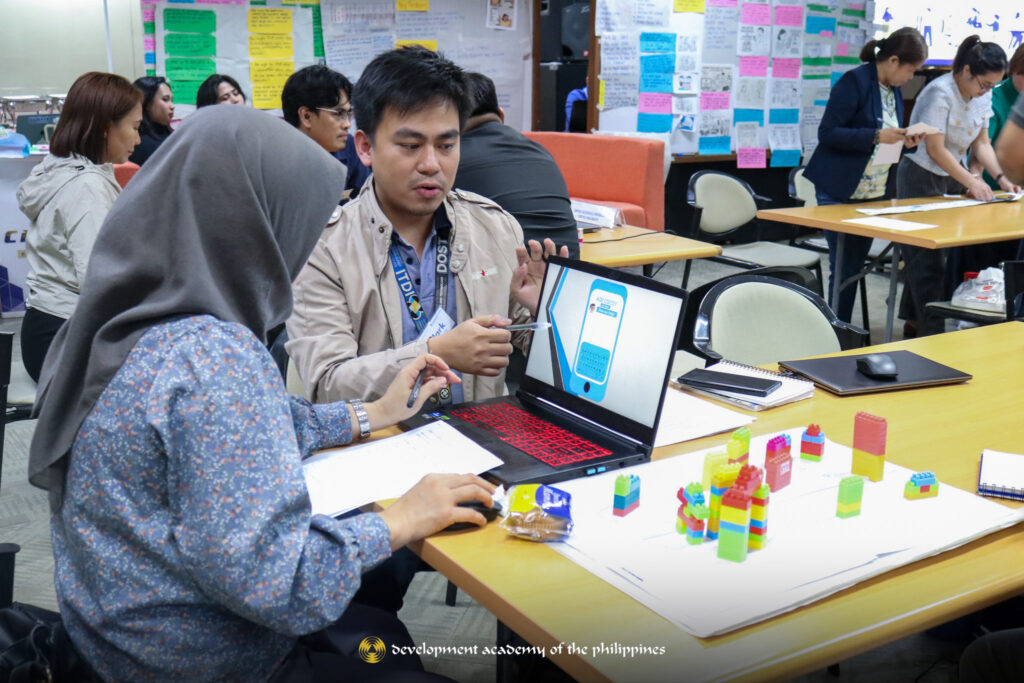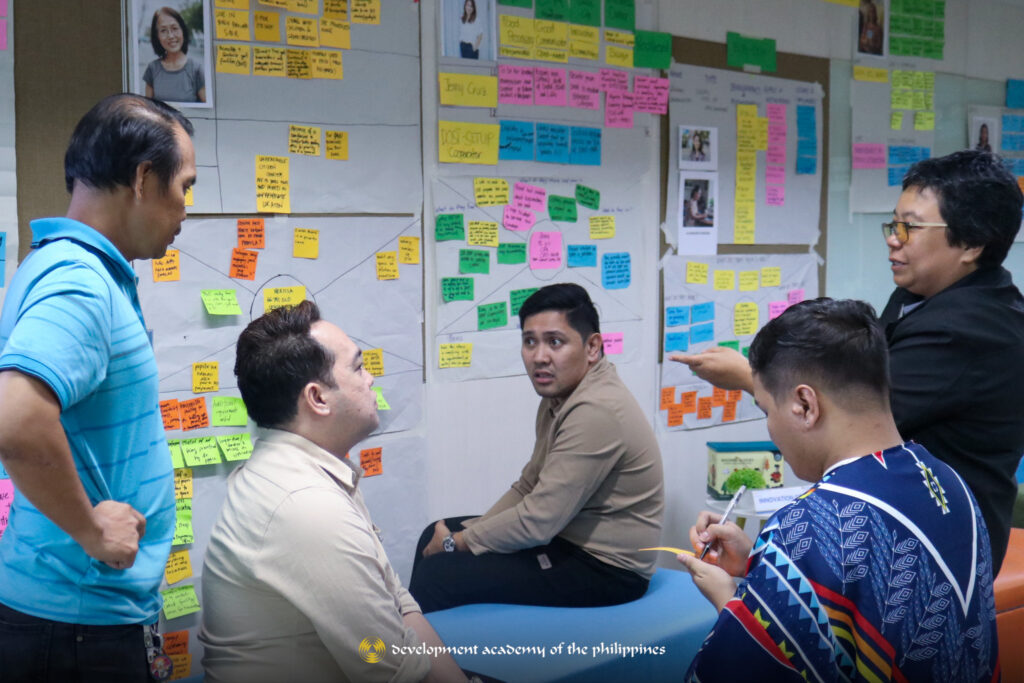The Development Academy of the Philippines (DAP), as the focal organization of the Asian Productivity Organization Center of Excellence on Public-Sector Productivity, successfully concluded the upskilling workshop of the “Designing Citizen-Centered Public Service” held from May 5 to 9, 2025, at the DAP Building in Pasig City. The five-day capacity-building program brought together 48 public sector professionals from 10 national and local government agencies and academic institutions, all working to enhance their capabilities in designing and delivering innovative, citizen-centric public services.
Participating organizations included the Bureau of Quarantine, Department of Education – Schools Division Office Masbate, Department of Science and Technology – Region XII, Department of Social Welfare and Development – Field Office III, Industrial Technology Development Institute, Local Government Unit of San Mateo, Rizal, Mindoro State University, Office of Civil Defense – Cordillera Administrative Region, Presidential Commission on the Urban Poor, and DAP.

Grounded in the principles of design thinking, the workshop followed a structured, hands-on approach through five key phases: Discover, Define, Design, Deliver, and Diagnose. Each session aimed to cultivate empathy, identify service delivery challenges, co-create solutions with stakeholders, and build actionable implementation plans.
The first day introduced participants to the foundations of public sector innovation, the importance of integrating citizen perspectives in service design, and the emerging role of artificial intelligence in enhancing government responsiveness.

Over the next several days, the teams applied tools such as user personas, empathy maps, and challenge statements to analyze and frame real-world service issues. These insights fueled ideation and prototyping sessions using creative techniques like SCAMPER, Opposite Thinking, and Idea Mashups. The participants then developed working prototypes and conducted user testing to refine their proposed solutions based on real feedback.
The final sessions focused on effective pitching and the development of detailed implementation plans to move concepts toward action. A standout component of the workshop was the “Diagnose and Debug” module, which equipped participants with strategies to identify and troubleshoot implementation challenges using collaborative, systems-based approaches.

In the coming weeks, participants will continue their journey through project pitching, coaching sessions, and pilot testing, with the goal of further iterating and eventually implementing their initiatives within their respective agencies and institutions.
As a culminating activity, participants will engage in knowledge and experience-sharing sessions to discuss the progress, challenges, and developments of their respective projects.
Through this initiative, DAP reaffirmed its commitment to fostering innovation and citizen-centric thinking in the public sector—empowering civil servants to create solutions that are inclusive, effective, and responsive to the needs of the Filipino people.


